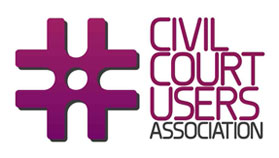Debt Recovery Blog
Enforcement of County Court Judgments
- Principal Solicitor
- September 14, 2021
Enforcing a County Court Judgment
If you have already taken steps to commence legal proceedings and have been successful in obtaining a County Court Judgment against your Debtor, the next thing that you need to consider is how you go about enforcing it and ensuring you get paid. Our team of experts at CSB Solicitors know the best enforcement options which will suit your personal circumstances. We can help you get your money back from your Debtor.
What happens next?
There are many different ways to enforce a county court judgment. While each option may be available to you, you would be advised to carry out your own research with regards to what assets your Debtor may have. After all, if your Debtor does not have the means to repay the County Court Judgment or have assets which you could recover to satisfy the amount owed, you may end up paying more to enforce a judgment.
Research or investigations may include the following:
- Form N316: Applying for an order for a debtor to attend court. Use this form to apply to the court for an order that a judgment debtor attends court to give information under oath about their financial situation;
- Carrying out a search at HM Land Registry to see if the Debtor own property;
- Instructing a Trace Agent or Enquiry Agent;
- Searching the data at Companies House;
The most common methods of enforcing a County Court Judgment include:
Why choose CSB Solicitors?
Let us help you collect a debt which is owed to you. We can assess your circumstances and provide tailored advice which is bespoke to your situation.
Further Blog & Legislation Categories
The contents of our blogs is to be treated as general guidance only. Please do not take any action based on the content of our blogs unless you have specifically instructed us to provide you with legal advice. CSB Solicitors do not accept responsibility for any errors or inaccuracies, loss, or damage in circumstances where there is no formal retainer between us and where we have not given you specific advice relating to a matter and where you have given us full details of the same.
The contents of our blogs are based on English Law, and because they contain historical material, that information may be out of date. For that reason, please consider the date that the blog was posted and remember that the laws may differ in different legal jurisdictions.










